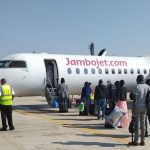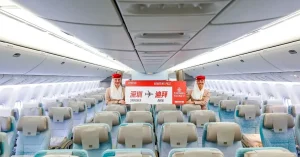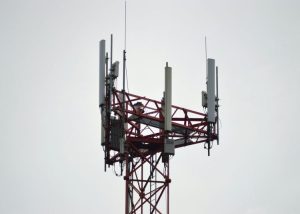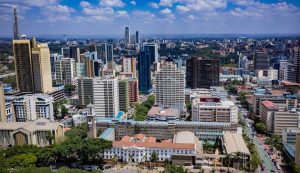If you have watched the 2011 Hollywood movie Contagion, then you can attest that it is almost believable that the current Coronavirus pandemic has borrowed from its playbook. The virus has not only caused more than a million deaths, but has also created abrupt changes in people’s daily lives and adversely affected the global economy while causing widespread panic.
India is currently the global center of a devastating new wave of the pandemic which has pushed the country’s health system to near collapse. Since the start of the pandemic, India has seen over 18.3 million cases and nearly 205,000 deaths as of April 29, ranking as world’s second highest case numbers, after the United States.
CNN reports that “the outbreak has pushed the country’s healthcare system to near breaking point. With no space left in hospitals, patients are being left to die at home, in ambulances and outside clinics. Even those who are given a bed remain in danger, with hospitals running out of oxygen and asking patients’ families to bring their own.”
India is Kenya’s and Africa’s key source market for travel and tourism. Africa has been watching in disbelief as India’s infection rates soared coupled with a rapidly rising death toll and the discovery of a new virus variant – leaving behind a stench of death and intermittent border closures.
Kenya’s travel industry insiders are bracing for a substantial slump in business following the government’s move to suspend all passenger flights between Kenya and India in a bid to contain the importation and spread of India’s variant to the country.
Kenya has joined a number of other countries that have restricted travel to and from India including Bangladesh, the UK, Oman, France, Hong Kong, Singapore, Canada and now USA which has already announced now guidelines for travel to India.
As a key source market, Kenya was banking on India to boost its international tourism numbers during the year. Official statistics from the Ministry of Tourism and Wildlife indicate that Kenya registered a total of 122,649 arrivals from India through the Jomo Kenyatta International Airport and was the second-largest source of imports to Kenya at KSh178.8 billion.
In 2020, statistics for the period between January to October show that the total number of tourist arrivals into Kenya from India was 25,251, almost a 90% decline which is attributed to the Covid-19 travel restrictions imposed by both Kenya and India.
A large number of patients from Kenya also travel to India every year for specialised medical treatment, due to its affordable and easily accessible healthcare, making the country’s medical tourism a key attraction.
As travel began to pick up in 2021, Kenya saw the Indian market as key to the revival of travel and tourism going forward. But this is never to be as India’s soaring number of cases have not only resulted to a total travel ban, but also chocked out its healthcare system, with hospitals facing acute shortage of oxygen, medicine and vaccines supply.
Impact on EAC’s Travel and Tourism
A recently released study by the East African Business Council (EABC) painted a grim picture of the Covid situation in the travel and tourism industry with the sector experiencing a loss of 2.1 million jobs in the 6 member states of the East African Community (EAC). The report said that there were massive reductions international arrivals, jobs, hotel occupancy rates among others.
EABC’s study that reported a loss of USD4.8 billion in the travel, tourism and hospitality industry caused by the impacts of the Covid-19 outbreak, comes at the backdrop of the world celebrating International Labour Day on 1st May. The loss is attributed to the impact of Covid-19 outbreak, mostly in key tourist source markets of Europe, North America, and Southeast Asia.
The study that was conducted by EABC with the support of the African Economic Research Consortium and the Bill & Melinda Gates Foundation aimed at assessing the impact of Covid-19 on the travel, tourism and hospitality industry and establish policy options to protect the sector players from Covid-19 disruptions and future pandemics.
A key point brought out by the study was that, businesses in the travel and tourism industry turned to borrowing as the only means to fund their running expenditures such as rent and utilities due to reduced operational capital. This is because the industry players in the EAC region lack a macro-economic policy that would help the industry mitigate the impact and business disruption caused by the pandemic.
Not out of the woods, yet.
A survey conducted by Skål International Düsseldorf and IU University of Applied Sciences Düsseldorf, that was carried out among Skål International members worldwide evaluating their professional view of the future of Travel and Tourism (TT) under the threat of the coronavirus, found out that 82% of the participants called their actual business situation bad or very bad. With 75% rating their business development in the past 2 months as stalled or declined.
Participants cited main reasons for bad business to be closed borders. The survey found out that despite there being some recovery from December 2020, stalling requests have persisted since January 2021 with clients waiting for a more stable situation before booking.
This is the exact situation facing travel agents in Kenya with the biggest hinderance being border closures. The travel agents experienced business shocks following UK’s decision to add Kenya to its red list and later issued a level 4 travel advisory against travel to Kenya. Kenya retaliated by imposing travel restriction for travellers originating from or transiting through the UK.
The US also moved to ban travel to Kenya following fears of the South African Covid-19 variant in Kenya spreading to the US. The latest in travel ban spree has been that between Kenya and India; all having catastrophic effects on travel agency businesses in Kenya.
The Skål International survey notes that the real game changer for the recovery of travel will be global immunisation by vaccination. Kenya started her vaccination exercise beginning of March 2021 with priority given to essential workers and risk groups.
The Ministry of Tourism and Wildlife also launched a nationwide Covid-19 vaccination drive for frontline personnel in the Travel, Tourism and Hospitality sector which is currently in its first phase of roll out.
“Our industry, like many others who depend on mobility, is in a survival fight. Things might become better, if the pandemic situation is under control faster by speedy global vaccination execution. But might become worse, if vaccination is delayed in many countries or the virus is causing new problems,” read the Skål report in part.
This recommendation comes when countries like Kenya and India and the rest of Sub-Saharan Africa are facing severe vaccine shortages. In 16% of the participating countries in the Skål International survey, vaccination has not even started yet.
Here is what to note. The situation in India is not unique to India, it can happen to any country. Africa has been a ticking bomb for a scenario like that in India. Already India’s “double mutant” variant has been reported in Uganda. The sooner African countries ramp up immunization by vaccination, the sooner its industries will recover, especially the travel industry.
Now that the travel industry in Kenya has been given some reprieve following President Kenyatta’s directive to lift the ban on travel and lockdown of the “five counties” in Kenya, and the unsuspension of local flights, it is paramount that the general public, led by sector players, to observer the Covid-19 travel protocols set in place for the purposes of safeguarding the economy against another lockdown.






